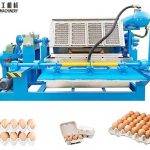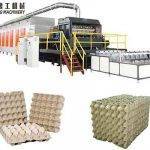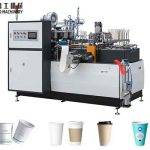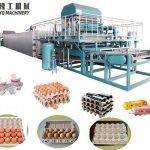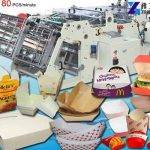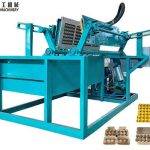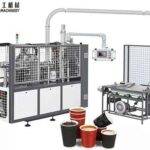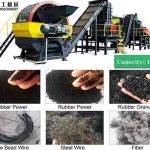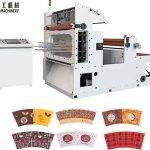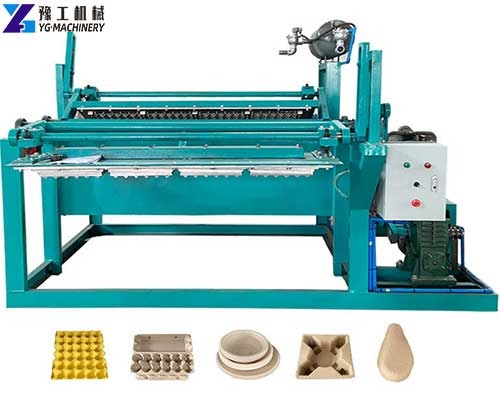
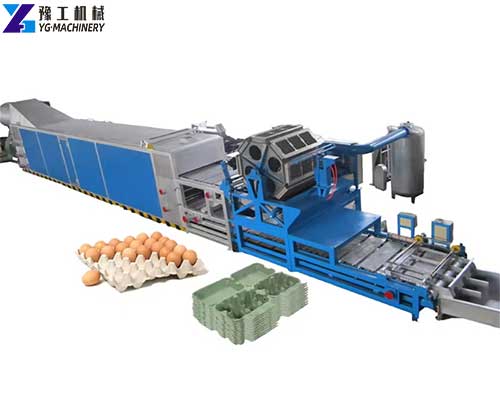
Paper pulp molding machine is a kind of equipment that makes pulp from waste paper or plant fiber and then presses it into various shapes through molds. Pulp molding machines can recycle waste paper into egg trays, egg boxes, cup trays, seedling trays, fruit trays, etc. It can be customized according to your needs. Whether you need fruit tray machines, egg tray machines, egg carton machines, or egg tray production lines, we can customize a solution for you. Of course, we also have many models for you to choose from, and we recommend the most suitable equipment according to your needs.【WhatsApp/WeChat/Skype/Phone】+86 136 1385 6800
Paper Pulp Molding Machine Parameter:
| Model | YG-1*3 | YG-1*4 | YG-3*4 | YG-4*4 | YG-4*8 | YG-5*8 | YG-6*8 |
| Capacity (pcs/h) | 1000 | 1500 | 2500 | 3500 | 4500 | 5500 | 7000 |
| Forming Mould Quantity | 3 | 4 | 12 | 16 | 32 | 40 | 48 |
| Total Power (kW) | 40 | 40 | 50 | 60 | 130 | 140 | 186 |
| Electricity Consumption (kw/h) | 28 | 29 | 35 | 42 | 91 | 98 | 130 |
| Worker | 3-5 | 4-6 | 4-6 | 4-6 | 4-6 | 5-7 | 6-8 |
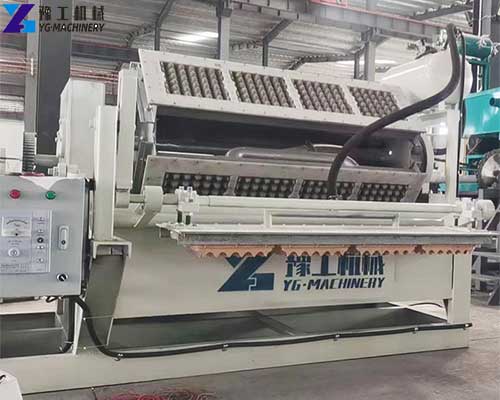
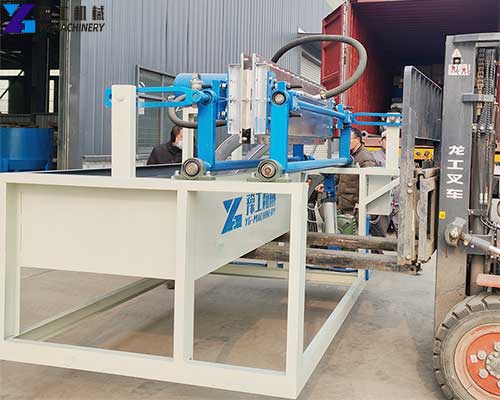
Paper Pulp Molding Machine Main Application Areas:
Packaging industry:
- Food packaging: egg trays, fruit trays, fast food boxes, etc. Pulp-molded packaging has good cushioning properties and can effectively protect products.
- Electronic product packaging: inner packaging of mobile phones, computer accessories, etc. Pulp-molded packaging can provide good cushioning and fixing effects.
- Industrial product packaging: inner packaging of auto parts, precision instruments, etc. Pulp-molded packaging can effectively prevent damage to products during transportation.
Tableware industry:
Disposable lunch boxes, plates, cups, etc. Pulp molded tableware is environmentally friendly and degradable, which is in line with modern people’s environmental awareness.
Automotive industry:
Automotive interior parts: door panel lining, ceiling, luggage compartment, etc. Pulp molded parts have good sound insulation and heat insulation properties.
Construction industry:
Partition boards, ceilings, floors, etc. Pulp molded building materials have the characteristics of lightweight, heat preservation, and sound insulation.
Agricultural field:
Seedling trays, flower pots, etc. Pulp-molded products have the characteristics of good air permeability and are conducive to plant growth.
Medical field:
Disposable medical device trays, surgical instrument boxes, etc. Pulp molding products have the characteristics of good biocompatibility and non-toxicity.
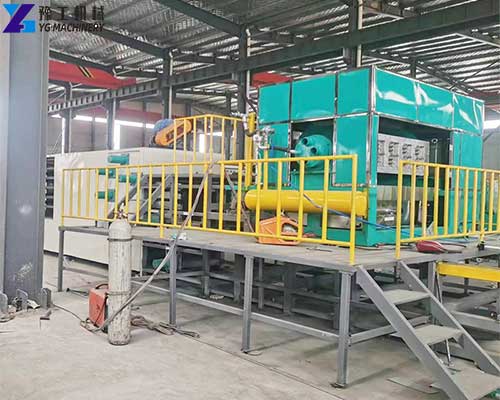
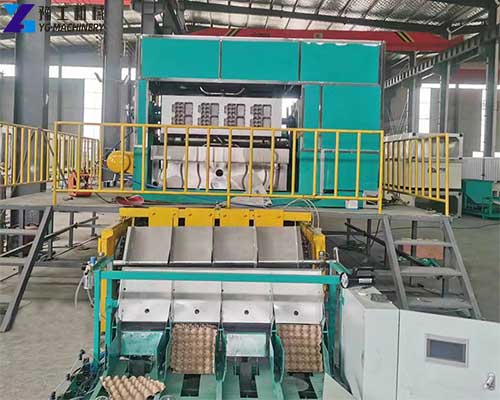
How do You Choose the Pulp Molding Equipment That Suits You?
1. Production demand assessment
- Product type: What types of pulp molding products do you need to produce? Different products have different requirements for equipment.
- Production requirements: What is the daily output you need? This will determine the scale and degree of automation of the equipment.
- Product specifications: The size, thickness, shape, etc. of the product will affect the selection of equipment.
- Product quality requirements: What are the requirements for the appearance, strength, precision, etc. of the product?
2. Equipment type
- Drum type: Suitable for producing small and medium-sized products, with a simple structure and easy operation.
- Reciprocating type: High production efficiency, suitable for mass production, but large equipment investment.
- Vacuum forming type: High product quality, can produce products with complex shapes, but the cost is high.
3. Equipment configuration
- Pulping system: The configuration of the pulping system will affect the quality and production efficiency of the pulp.
- Molding system: The type and number of molding systems will affect the shape and precision of the product.
- Drying system: The choice of drying method will affect the drying speed and quality of the product.
- Automation degree: The higher the degree of automation, the higher the production efficiency, but the higher the cost.
4. Supplier selection
- Technical strength: The supplier’s technical strength determines the equipment’s performance and reliability.
- Service capabilities: The supplier’s after-sales service, technical support, and other capabilities are essential.
- Brand reputation: Choosing a supplier with a good reputation can reduce risks.
- Price comparison: Compare the quotations of different suppliers and choose the one with the best cost performance.
5. Other considerations
- Floor area: Choose the appropriate equipment according to your plant area.
- Energy consumption: Consider the energy consumption of the equipment and choose energy-saving and environmentally friendly equipment.
- Environmental requirements: Choose equipment that meets environmental standards.
6. On-site inspection
- Visit the production line: Inspect the supplier’s production line to understand the actual operation of the equipment.
- Communicate with users: Communicate with other users who have used the equipment to understand its advantages and disadvantages.

